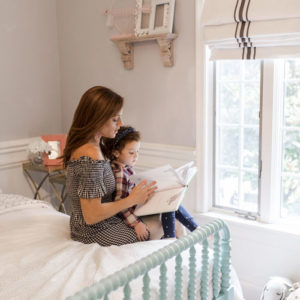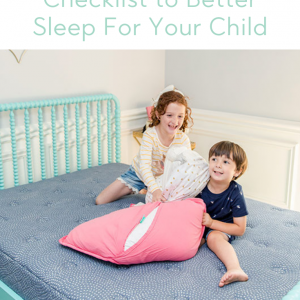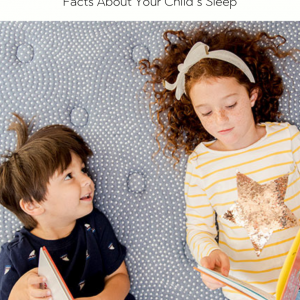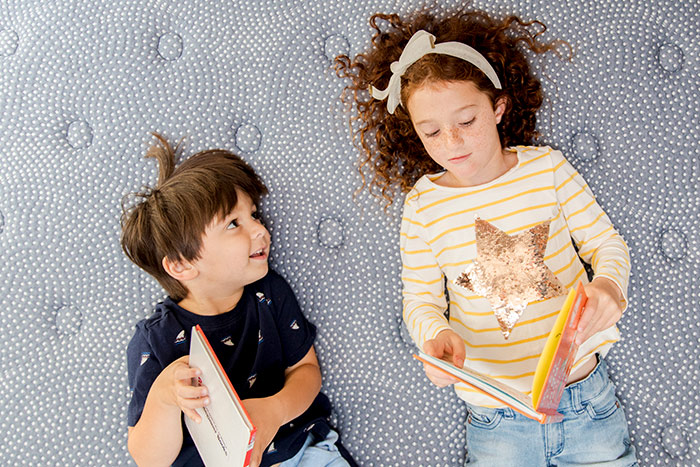
3 Scary Facts About Your Child’s Sleep Habits {and 4 Keys to Better Sleep!}
For most of us, late summer nights are now a thing of the past as we try desperately to get our children back on a consistent sleep schedule over the coming weeks. Endless summer nights with no schedules can make the back-to-school season a difficult transition, especially for toddlers. However, good sleep hygiene and a proper bedtime are imperative for the health and development of your child. So today, I I’m teaming up with LUFT Mattress to discuss the dangers of sleep deprivation and the important steps you should take to ensure better sleep for your kids.
Three Dangers of A Bad Night’s Sleep for Kids
Sleep has been the focus of many pediatric studies, all revealing that poor sleep hygiene can lead to dangerous consequences.
1. Decreased Immunity
Sleep is extremely important to maintaining good health and strong immunity. When our children are run down and tired, they become more vulnerable to becoming sick. While we sleep, our bodies recharge and become stronger.
This fact is especially important when heading into a new school year as children face new germs. This exposure leads to a surge of illness during the early months of school. The American Academy of Sleep Medicine, backed by the American Academy of Pediatrics, recently changed its recommendations for how much sleep children should get. Below are the new recommendations based on age:
- Infants 4 months to 12 months should sleep 12 to 16 hours per 24 hours (including naps)
- Children 1 to 2 years of age should sleep 11 to 14 hours per 24 hours (including naps)
- Ages 3 to 5 years should sleep 10 to 13 hours per 24 hours (including naps)
- Children 6 to 12 years of age should sleep 9 to 12 hours per 24 hours
- Teenagers 13 to 18 years of age should sleep 8 to 10 hours per 24 hours
BONUS POINT: Why Sleeping on a Safe Mattress is so Important
Mattress off-gassing is a hot topic these days and could very well be the lead paint of our generation.
That is a very scary statement!
Off-gassing is the release of volatile organic compounds (VOCs) and other chemicals from various materials and manmade products found in our homes. There has been a lot of research studying off-gassing and how it may bind to DNA, potentially causing cancer and mutations. The EPA even identified indoor air quality as one of the top five environmental risks to health.
Keeping your home, especially your bedding and your children’s bedding, free of radon, allergens, VOCs, and PBDEs is important for your entire family’s health and wellbeing. We love LUFT mattresses because their foam is Certipur-certified, ensuring no harmful off-gassing, VOCs, or toxins enter your child’s bedroom. And all materials that go into their Little LUFT mattresses are Okeo-Tex certified and allergen free!
2. Decreased Performance at School
There have been multiple studies linking irregular bedtimes with behavioral issues in the classroom. In addition to the cycle of behavioral challenges and lack of sleep, insufficient sleep in children can also lead to weight issues, hypertension, diabetes, depression, and decreased performance at school.
The bottom line is that consistent sleep routines lead to positive outcomes, such as improved attention, better behavior, improved emotional regulation, and overall good health.
3. Decreased Ability to Cope with Stress
Lack of sleep does not only affect a child’s mood but also affects their concentration and ability to cope with stress. Whether your child is a toddler or school aged, sleep deprivation can lead to your child becoming overly emotional with frequent temper tantrums and difficulty with impulse control.
The Ultimate Checklist to Better Sleep for Your Child
1. Establish a Solid Bedtime Routine
A predictable bedtime routine is imperative to creating good sleep hygiene. Children should wind down before bedtime to allow their minds to get ready for sleep. In fact, having the same routine every night mentally prepares your child well before bedtime.
Many parents don’t realize that a late bedtime can actually result in difficulty falling asleep and resistance to the bedtime routine. For most children, an appropriate bedtime is between 7:30pm – 8pm.
If your child regularly has trouble falling asleep, keep a sleep diary to help determine the causes of your child’s sleep problems.
2. Create a Healthy Sleep Environment by Purchasing the Safest Mattress
So many factors can affect your child’s sleep. While you can’t control all of these factors, you CAN control your child’s sleeping environment.
Certain health concerns have a huge impact on your child’s sleep. And an unhealthy sleep space can complicate matters. Parents often ask for tips and tricks on preventing eczema flares and asthma attacks. Many times, they invest in expensive air filtration symptoms, creams, and humidifiers to relieve symptoms.
But parents rarely invest in their child’s mattress for the same reasons.
Kids who suffer from asthma, allergies, ADD, ADHD, ASD, and neurological disorders are particularly sensitive to environmental toxins and triggers. One of my top tips for parents is to make sure your children sleep in a non-toxic and healthy environment. Investing in a mattress free of harsh chemicals is an often overlooked but very important step in overcoming these and other health concerns!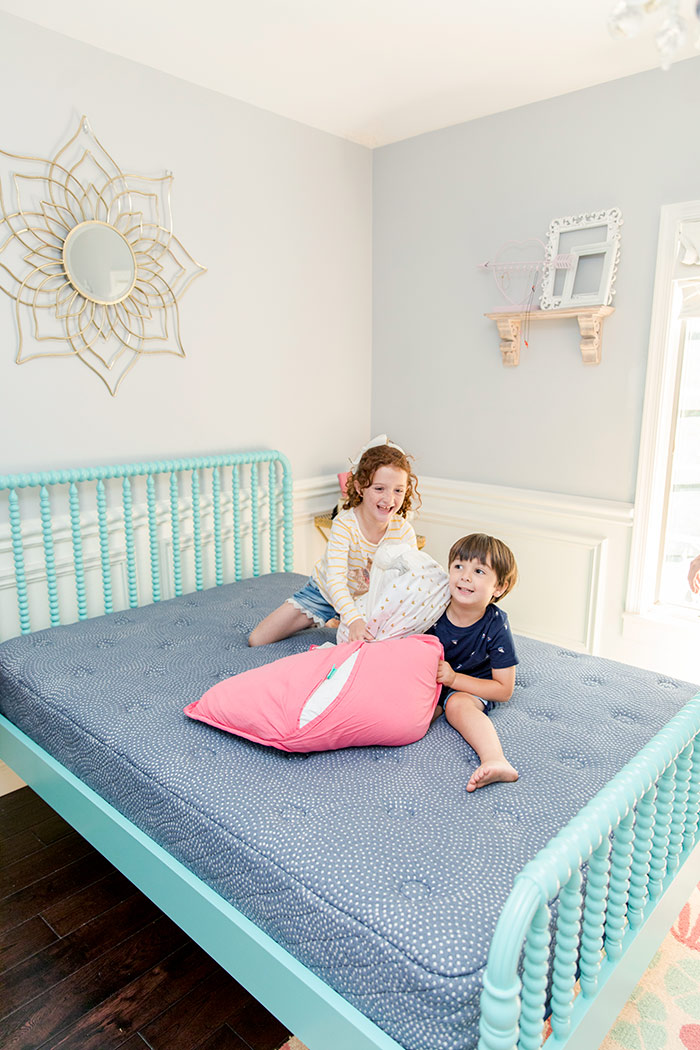
3. Decrease Screen Time
The American Academy of Pediatrics (AAP) recommends all screens be turned off 30 minutes to 1-2 hours before bedtime. Further, small screens (like smart phones) are more disruptive to sleep than TV. The light from the devices can impede natural hormones that help us fall asleep. Interruptions from these devices can also break apart our sleep.
Do not sleep with your cell phone, and do not let your children either.
4. Follow Your Child’s Cues
Did you know kids under the age of 12, or before puberty, get tired naturally around 8pm? So look for cues like yawning, rubbing eyes, and moodiness. Try to set bedtime within 30 minutes of these drowsiness cues.
Final Thoughts on Better Sleep Habits for Kids
Better sleep for kids doesn’t have to cause you such a headache. Sometimes something as simple as changing up or establishing a routine or investing in safe bedding options can make all the difference in the world!
~Dr. Katie


